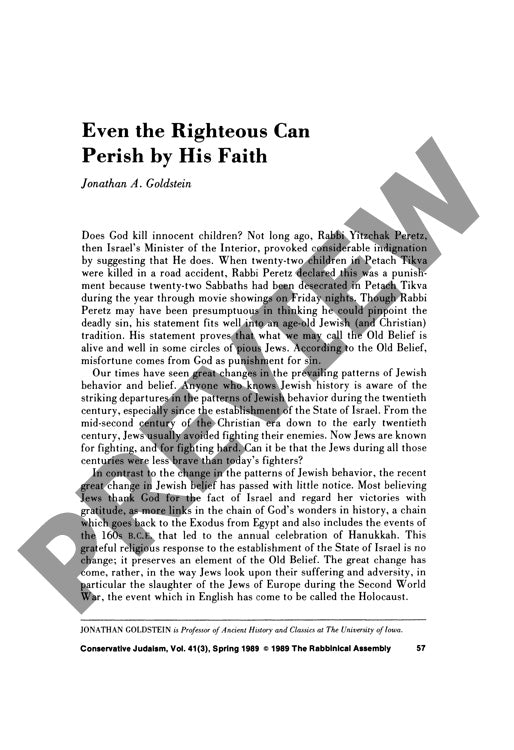Even the Righteous Can Perish by His Fai
Couldn't load pickup availability
For nearly three millennia, a core Jewish theological belief held that adversity represented divine punishment for sin - a conviction that paradoxically both preserved and imperiled Jewish communities throughout history. This "Old Belief" evolved through distinct interpretations: preexilic, postexilic, Hasmonaean, and rabbinic, each shaping how Jews responded to persecution and foreign domination. Through analysis of biblical texts, rabbinic literature, and historical events, this research reveals how this theological framework served as both anchor and liability - providing hope and moral direction while often fostering dangerous passivity in the face of oppression. The belief system contributed to the fall of ancient Israel and Judah, influenced centuries of Jewish non-resistance to persecution, and proved catastrophically inadequate during the Holocaust. Alternative theological interpretations, particularly Isaiah's teaching that adversity might stem from oppressor arrogance rather than Jewish sin, periodically enabled more active resistance, as demonstrated during the Hasmonaean revolt. While the Old Belief offered crucial psychological and communal survival mechanisms throughout Jewish history, it became maladaptive in modern contexts, particularly in twentieth-century Europe, where passive acceptance of persecution had devastating consequences for millions of Jews.

More Information
-
Physical Description
-
Publication Information
Published 1989
ISBN
-
Publication Credits
Jonathan Goldstein

